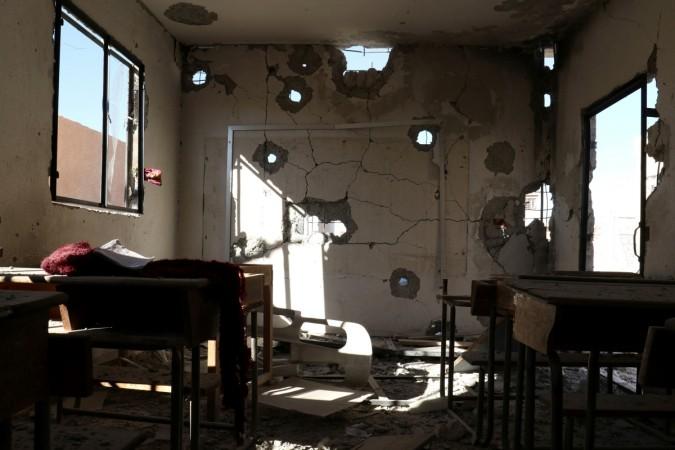
Airstrike on a Syrian school in which 28 people, including 22 students died, on Wednesday has garnered massive criticism from world bodies like the UNICEF.
"Twenty-two children and six teachers were reportedly murdered today when their school compound was repeatedly attacked in Idlib, Syria," said UNICEF Executive Director Anthony Lake on deadly attacks on schools in Idlib, northwest Syria.
"This is a tragedy. It is an outrage. And if deliberate, it is a war crime. This latest atrocity may be the deadliest attack on a school since the war began more than five years ago. Children lost forever to their families ... teachers lost forever to their students ... one more scar on Syria's future.When will the world's revulsion at such barbarity be matched by insistence that this must stop?" he said.
The London-based Syrian Observatory for Human Rights (SOHR) said that at least 35 people died in the attacks, including 16 children and seven women. They blamed the attacks on the Syrian regime under the leadership of President Bashar al Assad, of which Russia is an ally.
The aircrafts hit the school and surrounding areas of Hass, a village in Idlib, at least six times, CNN reported.
Syria civil defence organisation popularly known as the white helmets said that at least three schools were hit in Hass.
Another volunteering organisation in the region said that the attacks came as students from Class 1 to 9 were leaving the school. At least 50 students were at the entrance of the school when the strikes took place.
There have been growing concerns in Syria over a generation of children being lost to the civil war.
"Children in besieged eastern Aleppo were due to resume school in late September. They didn't. Instead, shell-shocked children are retrieved from rubble and left writhing in bloody clothes on dirty hospital floors," Stephen O'Brien, the UN under-secretary-general for humanitarian affairs said.

















